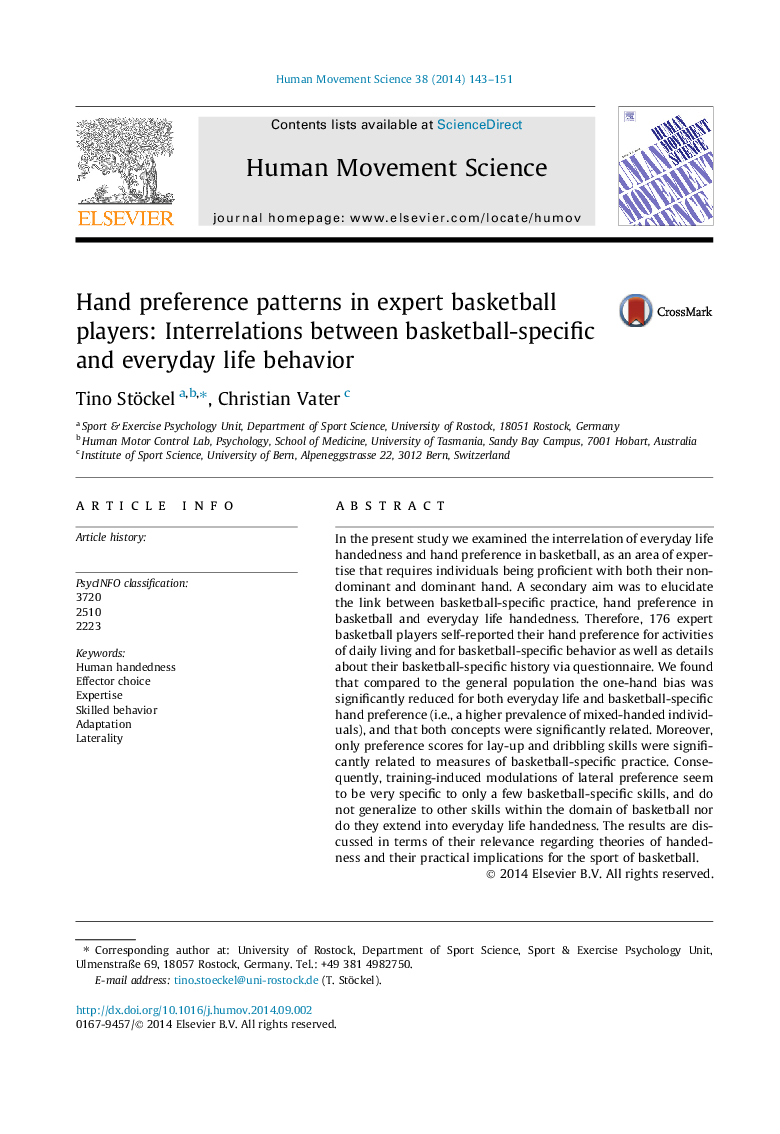| Article ID | Journal | Published Year | Pages | File Type |
|---|---|---|---|---|
| 7292300 | Human Movement Science | 2014 | 9 Pages |
Abstract
In the present study we examined the interrelation of everyday life handedness and hand preference in basketball, as an area of expertise that requires individuals being proficient with both their non-dominant and dominant hand. A secondary aim was to elucidate the link between basketball-specific practice, hand preference in basketball and everyday life handedness. Therefore, 176 expert basketball players self-reported their hand preference for activities of daily living and for basketball-specific behavior as well as details about their basketball-specific history via questionnaire. We found that compared to the general population the one-hand bias was significantly reduced for both everyday life and basketball-specific hand preference (i.e., a higher prevalence of mixed-handed individuals), and that both concepts were significantly related. Moreover, only preference scores for lay-up and dribbling skills were significantly related to measures of basketball-specific practice. Consequently, training-induced modulations of lateral preference seem to be very specific to only a few basketball-specific skills, and do not generalize to other skills within the domain of basketball nor do they extend into everyday life handedness. The results are discussed in terms of their relevance regarding theories of handedness and their practical implications for the sport of basketball.
Related Topics
Life Sciences
Neuroscience
Cognitive Neuroscience
Authors
Tino Stöckel, Christian Vater,
